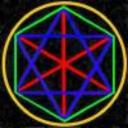Yahoo Answers is shutting down on May 4th, 2021 (Eastern Time) and beginning April 20th, 2021 (Eastern Time) the Yahoo Answers website will be in read-only mode. There will be no changes to other Yahoo properties or services, or your Yahoo account. You can find more information about the Yahoo Answers shutdown and how to download your data on this help page.
Trending News
What ancient holiday is Halloween based on?
How is this ancient holiday "celebrated" and why?
Please include supporting links with your answer. THX!
3 Answers
- Anonymous1 decade agoFavorite Answer
It's celebrated to mark the end of the harvest and it's believed to be one of the 2 times of the year where the line between this world and the after world are the thinnest.It was originally celebrated in the British Isles, and people would carve turnips and squash into scary faces to scare away "bad spirits".Same reason for the dressing up thing.The pumpkin carving thing came after pumpkins were introduced to the area.
- Mrs. PearsLv 51 decade ago
Samhain ("sow-in") is the ancient holiday. It celebrated the new year, and it was also seen as a time when the veil from this world that the next was lifted. People light candles in their windows to guide spirits, and they set an extra place at the table for lost loved ones. Apples are also buried on the side of the road. People also wore costumes or masks to scare away bad spirits.
- Anonymous1 decade ago
Halloween (IPA pronunciation: [hælÉ'win], [hælo'win]) is an observance celebrated on the night of October 31, most notably by children dressing in costumes and going door-to-door collecting sweets. It is celebrated in much of the Western world, though most common in Canada, the United States, Puerto Rico, Ireland, the United Kingdom, and with increasing popularity in Australia, and sometimes celebrated in New Zealand. Halloween originated among the Celts in Ireland, Britain and France[1] as the Pagan Celtic harvest festival, Samhain. Irish, Scots, Welsh and other immigrants brought versions of the traditions to North America in the 19th century. Most other Western countries have embraced Halloween as a part of American pop culture in the late 20th century.
The term Halloween, and its older spelling Hallowe'en, is shortened from All-hallow-even, as it is the evening before "All Hallows' Day"[2] (also known as "All Saints' Day"). In Ireland, the name was All Hallows' Eve (often shortened to Hallow Eve), and though seldomly used today, it is still a well accepted label. Halloween was also sometimes called All Saints' Eve. The holiday was a day of religious festivities in various northern European Pagan traditions, until it was appropriated by Christian missionaries and given a Christian interpretation. Halloween is also called Pooky Night in some parts of Ireland, presumably named after the púca, a mischievous spirit.
Halloween is sometimes associated with the occult. Many European cultural traditions hold that Halloween is one of the liminal times of the year when the spiritual world can make contact with the physical world and when magic is most potent (e.g. Catalan mythology about witches, Irish tales of the SÃdhe).



